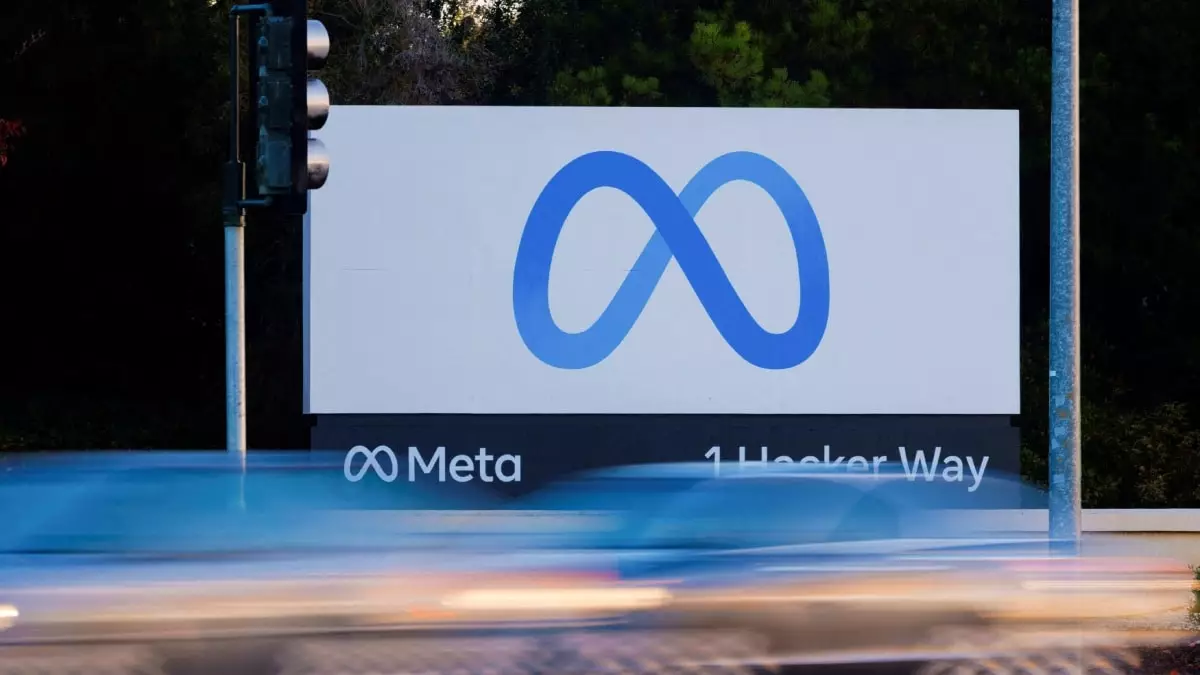The recent decision by the European Union to impose a staggering fine of 91 million euros ($101.5 million) on Meta, the parent company of Facebook, underscores the serious nature of privacy violations in the digital age. This hefty fine is a consequence of the company’s failure to adequately protect user passwords, as it was revealed that certain passwords were stored in ‘plaintext.’ This incident serves as a wake-up call not only for Meta but for the entire tech industry, highlighting the ongoing challenges of data protection and user privacy at a time when consumers are increasingly concerned about the security of their personal information.
The debacle traces back five years when Meta self-reported the issue to Ireland’s Data Protection Commission (DPC). This proactive step initiated an inquiry into the company’s data handling practices. Although Meta assured the DPC that the exposed passwords were not accessible to external entities, the fact that such sensitive data was stored without encryption is alarming. The statement from Graham Doyle, Deputy Commissioner of the DPC, emphasizes a universally recognized principle: storing passwords in plaintext is a reckless oversight that can lead to significant risks for users, should such information fall into the wrong hands.
In response to the findings, a Meta spokesperson indicated that the company took immediate corrective actions following the identification of this error during a 2019 security audit. Although the spokesperson asserted that there was no evidence of misuse or improper access to the exposed passwords, the damage to Meta’s reputation may partially stem from the longer-term query about how such a significant lapse occurred in the first place. The assertion of constructive engagement with the DPC also raises questions about the efficacy of their data protection practices prior to this incident.
What’s noteworthy is the role of the DPC as the principal regulator for many American tech giants operating within the EU. Assigning such a measure of oversight to a single entity underscores the challenges regulators face in managing multinational corporations whose data practices can vary drastically. The total penalties levied against Meta under the General Data Protection Regulation (GDPR) amount to an eye-watering 2.5 billion euros, which points to a persistent failure to comply with fundamental privacy standards since the regulation’s introduction in 2018.
As Meta’s fine adds to an already substantial list of penalties, it raises critical questions regarding the accountability of tech giants in safeguarding user data. The landmark 1.2 billion euro fine issued in 2023, currently under appeal, sets a precedent that may trigger even stricter oversight and enforcement actions across the digital landscape. This environment of heightened scrutiny compels all companies to reassess their data protection measures and prioritize user privacy to avoid similar pitfalls.
The recent penalty against Meta is not merely a financial setback but a crucial reminder that privacy is an ongoing responsibility. As technology continues to evolve, so too must the practices surrounding data protection, ensuring that user trust is not compromised in the race for innovation and market dominance.


Leave a Reply
You must be logged in to post a comment.